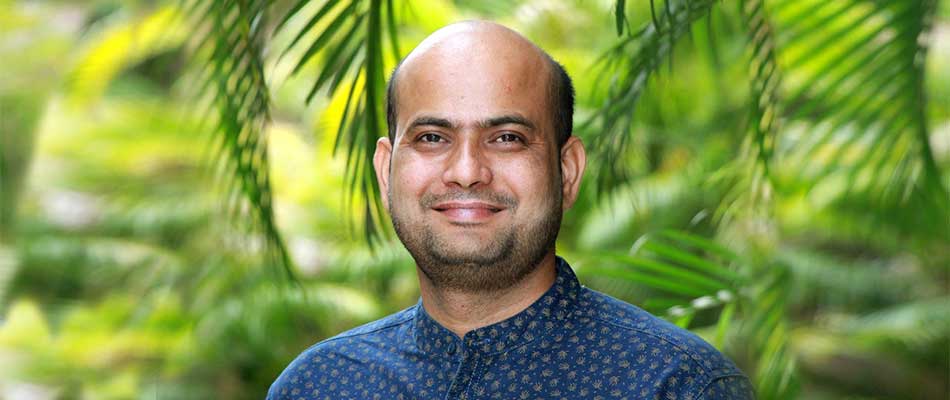At first glance, the COVID-19 pandemic looks like a medical and health emergency. Accordingly, in response, resources from medical and physical sciences are mobilized to deal with it and rightly so. However, crises like the one we are facing currently impact almost all aspects of human society as it is clearly evident from the shutting down of industries, businesses, travel, employment, and various services. This multidimensional nature of the crisis requires a response and discourse which is also not limited to a particular discipline of science. In other words, it is the time to look at the situation through a social sciences lens and reflect upon the scenario in a broader perspective. It is important for two specific reasons, firstly, as mentioned the crisis is more than just a medical and health emergency, secondly, the interventions strategies have to be informed from a more diverse set of knowledge available across the disciplines.
The social scientific research and knowledge have served communities and have proven invaluable in addressing several infectious outbreaks historically. They have been recognized world over as important players in formulating a society’s response to the diseases outbreak because of their ability to assess social, economic and political factors in local contexts. For example, one of the earliest contexts in which anthropological knowledge was applied in addressing the international public health movement that began in 1920s which marked the beginning of medical anthropology as a specialization. This field established itself in bringing theoretical and applied approaches of cultural biological anthropology to the study of human health and disease. Similarly, if anthropometrical knowledge, which provides various measurements of the limbs of the body, can be used in designing sitting arrangements in aeroplanes, railways, class rooms, offices etc., it has a lot to contribute in developing a community oriented approach to health emergencies.
Paul Farmer (1996) points out the need for a critical anthropology of emerging infections- a new field which could help in identifying the social, economic and political factors underlying public health crisis and contribute in designing interventions (as cited in Stellmach et al. 2018). It is not surprising that this call echoed with the social scientists across countries and large number of them provided their skills in dealing with health emergencies such as Ebola virus outbreak, cholera and HIV (in some regions), H1N1 and SARS outbreaks in the recent past.
When anthropology and sociology could contribute in framing the complex social structure dynamics of the pandemic, political scientists could help in identifying the political and public institutions which need to be activated in response, international relations experts could pitch in finding out the diplomatic and solidarity channels across the countries and territories to make movement of citizens belonging to different countries, expertise of migration and labour experts, a critical domain in a country like India, are immensely helpful in suggesting measures to protect the backbone of any economy and society, the labour. The importance of the last one is clear from the developments in last few weeks regarding the dangerous situation which our labour is facing in different parts of the country struggling not just to survive the deadly virus but from hunger and hostility. Another important sphere where the social science expertise should play a critical role is the economy which not only should allocate resources for fighting the pandemic but shall also keep the economy revived and make plans for post-crisis recovery. Similarly, the psychiatrists and psychologists manage the emotional and psychological well-being by addressing the anxieties and mental health concerns of the directly and indirectly affected populations.
Historians visualize through the eyes of the past how societies conceptualized and dealt with disease. They provide a perspective to develop an understanding of facing the realities of disease and death and how to cope with them based on past experiences. This cumulative knowledge evolved with cultural and societal conditions, beliefs and practices is important in determining curative and preventive interventions. A sustained rational persuasion by the progressive forces should work to disseminate scientific knowledge available to the human society to fight against any kind of obscurantist ideas which mislead the masses about the nature, causes and remedies of the disease.
Different specialisations and expertise produce different approaches, strategies and ethical responses to a situation and this should be maintained rather than trying to fit all responses in ‘one size fits all’ or ‘one pill for all ill’ module.
Physical and natural sciences which need to suddenly divert the resources and efforts to address the crisis to look for a cure and mechanisms to avoid reoccurrence. Failures and successes of dealing with public health emergencies are something which enrich the modern medical knowledge and have been recorded across disciplines. Times like these are not to prove superiority of certain disciplines, approaches or methods but to highlight the necessity of a holistic approach which is as necessary as ensuring adequate health safety measures to fight collectively and protect the most vulnerable and marginalized. An integrated inter-disciplinary approach shall strengthen our response and articulation to minimize the avoidable and preventable ordeal and casualties.
A more interactive methodological approach incorporating the social sciences, health and medical sciences bringing the best available evidence of science and practice together for greater effectiveness in public health policies and practices is the way ahead. The trial and error which has been the base for the discovery of various kinds of vaccines and life-saving medicines shall continue and now is the time that the governments should pump in resources to encourage research in these fields. This would mean that inter-disciplinary social science knowledge domain should be a necessary element in deciding interventionist or precautionary measures and to ensure their effectiveness to deal with a public health emergency.
- Prof. Shamsher Singh, Assistant Professor – Sociology
Reference:
Stellmach D, Beshar I, Bedford J, Cros, Philipp du, Stringer, Beverley. 2018. Anthropology in Public Health Emergencies: What is Anthropology Good for? BMJ Global Health.
Farmer P. 1996. Social Inequalities and Emerging Infectious Diseases. Emerg Infect Dis, 259–69.


